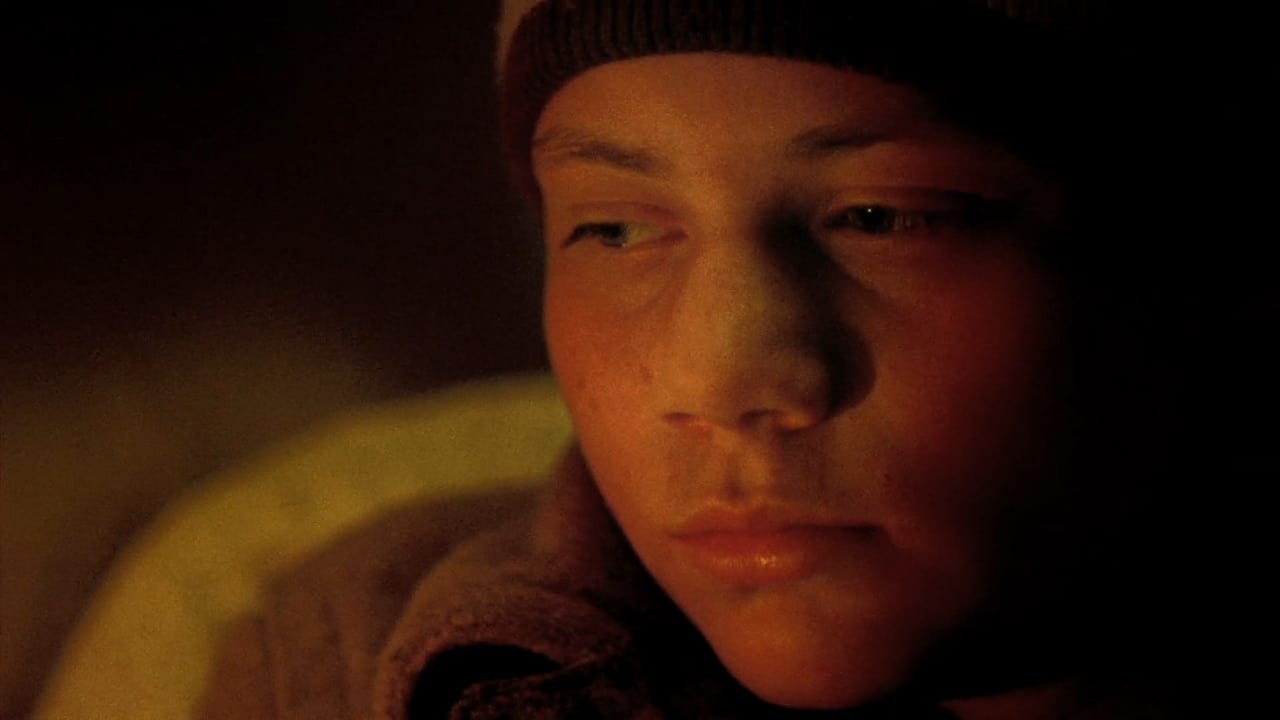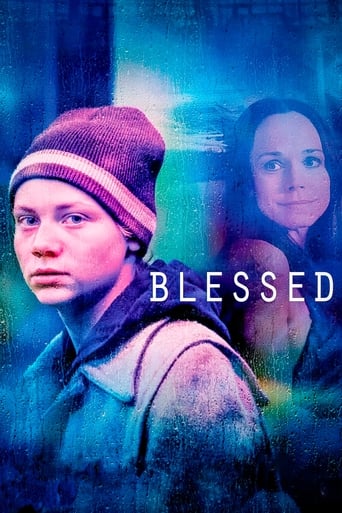

Most undeservingly overhyped movie of all time??
... View MoreFrom my favorite movies..
... View MoreThrough painfully honest and emotional moments, the movie becomes irresistibly relatable
... View MoreOne of the film's great tricks is that, for a time, you think it will go down a rabbit hole of unrealistic glorification.
... View MoreAs many other Australian movies, this work is hard to comprehend at a firs glance by the non-Australians, those used, especially, to enjoying the public places in accordance with their local rules heralded – NOT being punished for NOT listening a music without headphones/cell-phone deliberating last shag details in a computer zone if any, at a local public library, for instance.Such a very specific flexible Australian approach in situ to human freedoms and liberties demanded from the rest of the world to follow uncompromisingly, has been seen sure-transparently in works by Ana Kokkinos, a movie-maker having already a world shocked with her brilliant "Head On" and definitely-Australian "The Book of Revelations", of which contexts are simple dominance of what-want-to-do attitude as a resistance against commoner's factual powerlessness and arbitrariness factually sustaining a grey boring grass-root subsistence of semi-egalitarians/semi-inmates of Australian ethnic minorities she belongs to, particularly.This new movie is of inter-family relations and how strangers are interacting unknowingly in their common inability to change anything in lives run down in modern dead-boring Melbourne-a self-proclaimed vibrant cultural capital of Australia.A gem not to miss.
... View MoreI was tremendously moved by this movie from Australia, and the audience at the London Film Festival were very appreciative of director Ana Kokkinos who attended to introduce the film and for a Q&A. Blessed is based on an Australian play called "Who's afraid of the working class" which was produced in 1999. So the project to make it cinematic has taken the best part of 10 years for Ana Kokkinos. Ana's focus in the film was towards the relationships between mothers and their children (or blessings), and stripped out anything from the play that didn't fit in that agenda.The film is simply that, an examination of the bond between mother and child, with a strong backdrop of contemporary Melbourne. I think it was a challenge to try and strip the theatricality out, but that seems to have been pulled off really well (both with the structure of the film which is very cinematic and the focus on the close-up of the human face, which is a cornerstone of cinema). There are around five different stories here, which have some degree of connectivity, which avoids the choppiness you can get in a typical portmanteau film. Mostly we are seeing children on the streets of Melbourne, instead of in school, in some degree of confrontation or peril. There is a structure so that you can see the same story twice, once from the children's side and once from the adult's side.I think the cast is cracking. Frances O'Connor as Rhonda if electric in this movie, like a force of nature, a flaming creature. She does some terrible things, they are sins of omission more than anything else (though they are still heinous). There is a scene in this movie where heavily pregnant Rhonda dances in a nightclub after a huge incident, whilst her social worker looks on in awe and disbelief. That's the attitude of the audience mirrored. Rhonda's alive with sexuality and agony throughout the whole movie, so apart from the way most people live in their ultra-sanitised lives where they've tried to remove everything animal. The social worker is a proxy for the middle class audience member, who is university educated and has erased their pagan side.The level of confrontation in the movie is astonishing to anyone (like myself) who lives in a confrontation-phobic milieu. A police detective in a darkened interview room, full of frustration and rage, tells two truant girls how miserable they are and stupid, and how they've got no talent going for them and that they know nothing, and will never amount to anything.Cezary Skubiszewik music is absolutely haunting, it's played over the opening scenes where we see all the children asleep in their beds. You know right then that you're in for a very special movie. It's a raging torrent of love and hatred and pure emotion that leaves you bewildered and touched by the dilemmas and hideous positions that the characters find themselves in.I don't have any trouble in saying that this is the finest film I saw in a programme of at least 25 films, including the eventual winner of the festival, Jacques Audiard's Un prophète.
... View MoreI attended the International Premiere of "Blessed" at the 2009 Toronto International Film Festival. Many of my favorite films have come from Australia, so I had high hopes going into "Blessed," and was not disappointed. This is just the kind of film I look for -- a sweet little gem that will make you laugh and cry."Blessed" follows five mothers and seven kids -- three boys and four girls -- aged 14-18, as they wander the streets after having run away or been abandoned by their parents. Left to fend for themselves, each teen's plight is poignantly portrayed by a talented young group of Australian actors culled from thousands. Mostly unknowns, I did recognize the terrific Harrison Gilbertson as Daniel, who starred in "Accidents Happen," one of favorites from this year's Tribeca Film Festival. The mothers are appropriately anguished at the apparent loss of their loved ones, not knowing whether or not they'll ever come home. The vulnerable teens fall prey to their own as well as others' desires, and there are enough twists and turns to add additional layers to an already compelling set of stories. "Blessed" left me with a smile on my face and a tear in my eye. It's a superb character-driven study of the bond between mothers and children.
... View MoreAnna Kokkinos extracts excellent performances from her actors - particularly the young ones. Even actors like Deborah Lee-Furness and Miranda Otto, whom I usually find dull, shine in this heavy-handed plodder with a multi-strand plot about three dysfunctional families. There are a few admirable moments, when there is little or no dialogue - Miranda Otto dancing; and a scene in which she and William McInnes meet at a bar - beautifully played. But when characters say things like ' You never touch me' (really!) ..what is there for the audience to discover? There is also a scene in which an elderly woman faces a young housebreaker - it absolutely creaks with clichéd sub-Pinter ponderousness, as does much of this worthy portrait of working-class suffering, produced by the comfortable bourgeoisie. However the most pernicious moral aspect of this piece is that, of the three mothers who face possible tragedy, it is the 'bad' mother who cops it. Apparently the catering during the production of this movie was excellent, so you can rest assured that no-one involved in its making actually suffered.
... View More